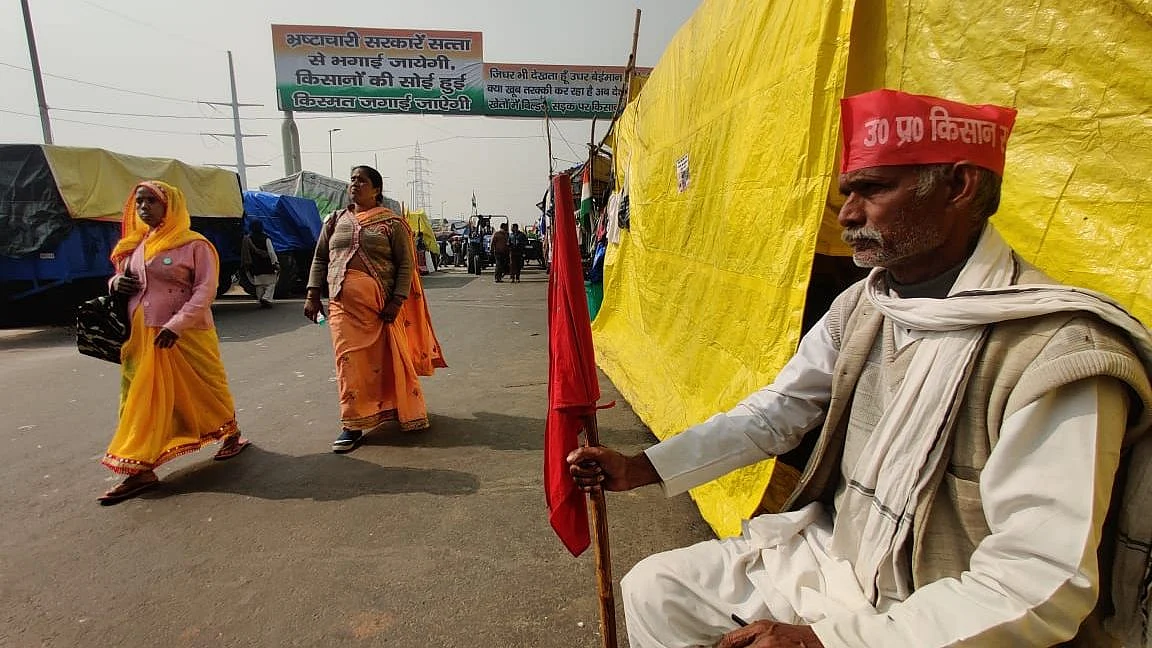WFH, Classes Impacted by MHA’s 2-Day Internet Ban in Delhi Borders
The order, released on Saturday, 30 January, said that this was being done to ‘maintain public safety.’

advertisement
Video Editor: Abhishek Sharma
Daily life has been hit by the Union Home Ministry's temporary suspension of internet services at Delhi borders – Singhu, Ghazipur, and Tikri – the epicenters of the farmers’ protest from 11 pm of 29 January till 11 pm of 31 January.
However, residents of nearby neighbourhoods have been unable to attend work or online classes from their homes due to the intermittent ban on internet services.
Himanshu, resident of a neighbourhood around Delhi’s borders area where the farmers have been protesting for more than two months, spoke to The Quint about how the shutdown is impacting working professionals.
“Recently I got an SMS saying that the government has shutdown the internet in our area until further notice. I just got a new job and I am currently working from home but I haven’t been able to get any work done. Employers won’t care that your area has an internet ban, they are concerned with productivity. I don’t think internet ban is the right solution.”
Sunita, another resident, complained about her children being unable to attend their classes. “My children have been attending online classes on via mobile phones and they haven’t been able to join for their daily lessons,” she said.
The MHA has invoked the Temporary Suspension of Telecom Services (Public Emergency or Public Safety Rules 2017) of the Indian Telegraph Act, 1885 to suspend the internet in the borders and adjoining areas.
This is the same provision used for internet shutdowns from time to time across the country, including, in particular, Jammu and Kashmir, where it is currently being used to keep mobile internet speeds at 2G levels.
In January 2020, the Supreme Court in its Anuradha Bhasin verdict held that any restrictions on the internet under these rules have to be for a limited period of time and have to be justified by reasoning for why the restriction of services is necessary.
Any such orders have to be placed before the review committee created under the Rules within a fixed period of time, and can also be subject to judicial review for being disproportionate.
Internet services have been crucial in disseminating information from the protest sites for some time now, with protesters running several social media accounts, and digital news media outlets also using internet services to send videos of events on the ground.
These included videos of farmer leader Rakesh Tikait’s emotional address on 28 January, as well as videos showing police personnel standing by while goons attacked the farmers at the Singhu border on 29 January.
The move to suspend internet services for two days at the Delhi border protest sites has drawn criticism online. Digital rights advocacy group Internet Freedom Foundation said that such restrictions “are against democratic norms of peaceful assembly and protest.”
The restrictions at the Delhi borders follow an order suspending mobile internet services and even SMS services in 17 of 22 districts in the state of Haryana from 5pm on 29 January till 5 pm on 30 January.
(This is a developing story. The copy will be updated with more details.)